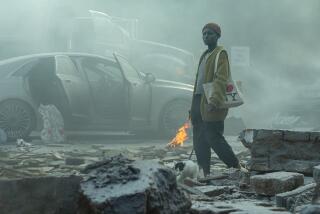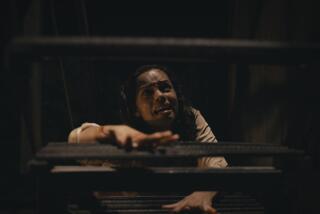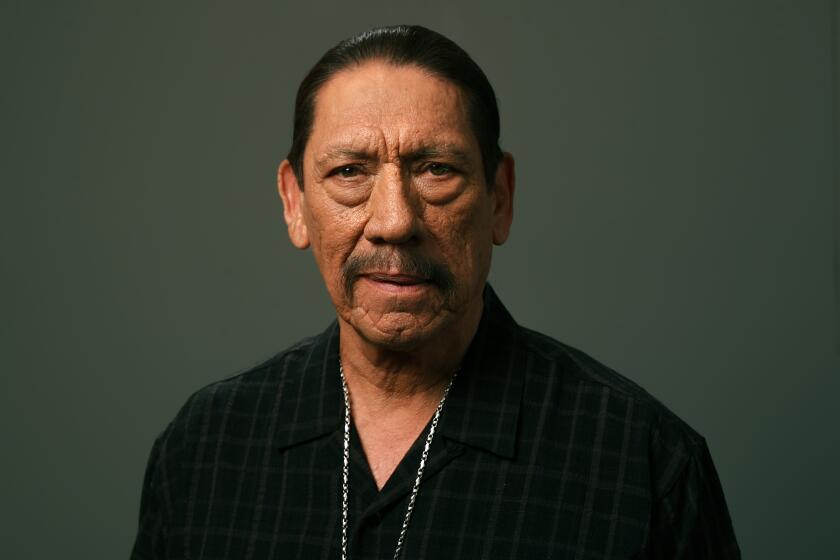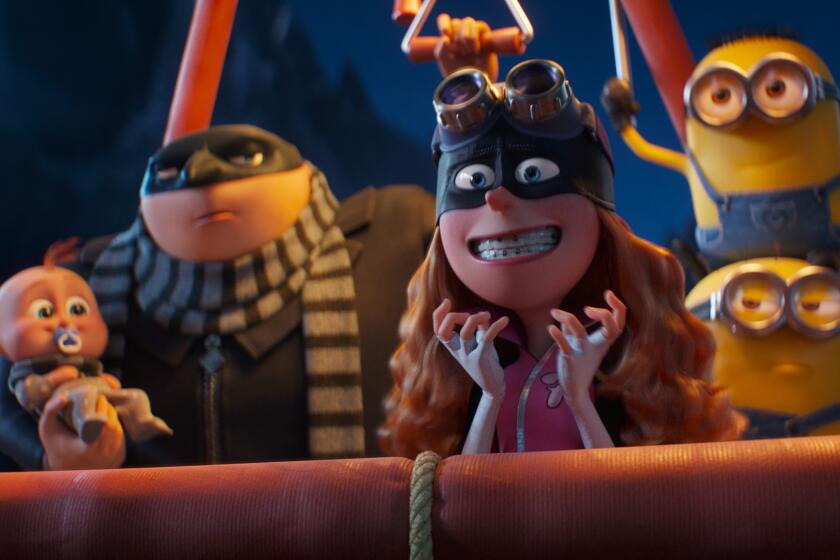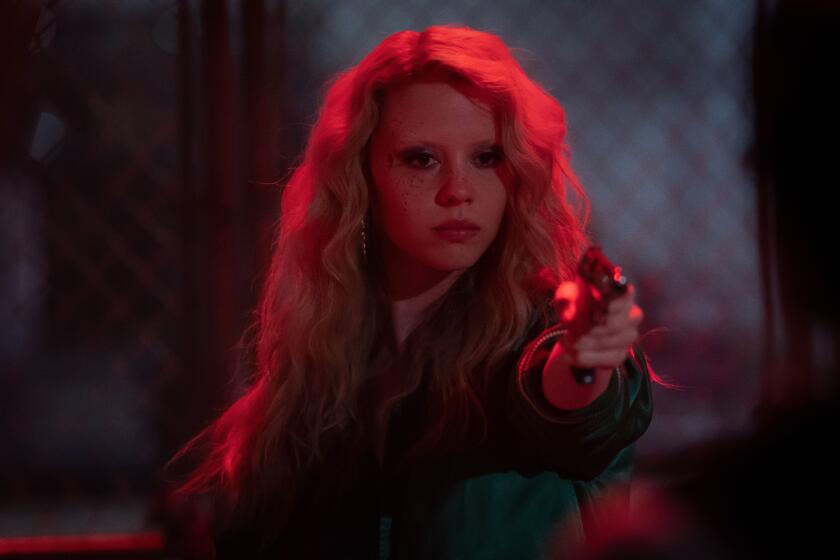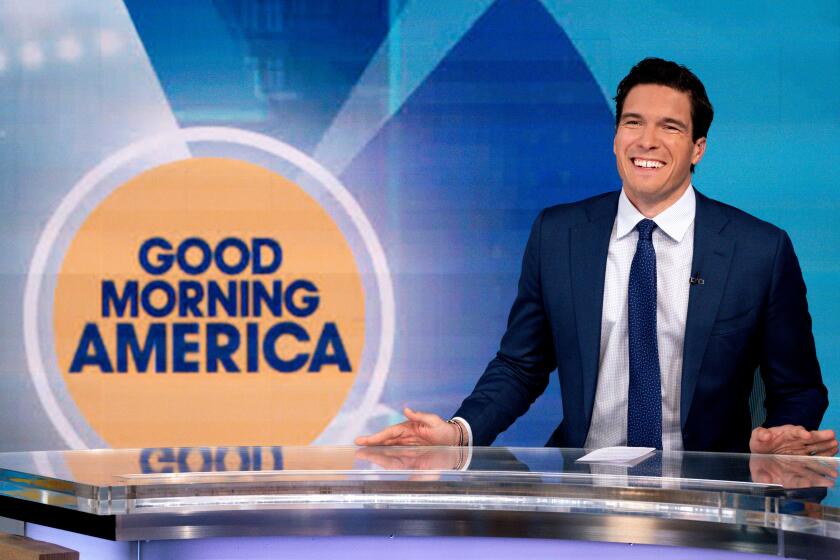A Turn of Events, a Change in Plot
Screenwriter Peter Griffiths’ phone started ringing around 6 the morning of the Sept. 11 terrorist attacks. When he answered, his brother David was on the line.
“Turn on the TV,” he commanded. Two planes had crashed into the World Trade Center. “This is appalling,” he said. “And of course, our movies aren’t going to go.”
Everywhere you look in Hollywood since that tragic day, the entertainment landscape has been transformed, as if ripped asunder by a massive earthquake. People have come to work feeling like jittery sleepwalkers, especially after the studios received FBI warnings late last week that they could be possible targets for terrorism. Top executives who normally boast about their upcoming slates instead blurt out confessions that what they do for a living suddenly seems unimportant. No one is touting their movies’ Oscar chances--at least not for a few more weeks.
Hearing all this self-examination--and it’s in newsrooms as well as studio suites--makes you feel as if you’ve walked into the middle of a Frank Capra movie where the glib, narcissistic characters who worried only about their careers have been replaced by earnest souls wrestling with how they can make a difference in the world.
If anyone’s career has been rocked by the terrorist bombings, it is Peter and David Griffiths’. Just a few short weeks ago the British-born brothers were hot screenwriters with two A-list thrillers in the works. They share credit on “Collateral Damage,” the Arnold Schwarznegger film about a man seeking revenge against terrorists who blow up a building, killing his wife and child. They had also finished two drafts of “Deadline,” a James Cameron-produced project involving terrorists taking over a jetliner that was in top-secret development at 20th Century Fox.
Both projects are now in limbo. It is expected that Warner Bros. will eventually release “Collateral Damage,” but no one is willing to say when. Fox co-Chairman Tom Rothman says the studio hadn’t made any decisions about the future of “Deadline,” saying “we’re evaluating the project in light of current events.” Sources close to the film said director Tony Scott had expressed interest in the project, but had backed off in the wake of the terrorist attacks.
Nearly every studio has been postponing films, giving them face lifts or tossing scripts out the window.
* Disney has pushed back the release of “Bad Company,” an action comedy starring Chris Rock and Anthony Hopkins as mismatched CIA agents. The film was scheduled to come out at the end of the year.
* Columbia Pictures announced Friday that it has delayed the start date for “Tick Tock,” in which Jennifer Lopez plays an amnesiac who’s the prime suspect in a series of bombings.
* MGM has shelved “Nose Bleed,” a Jackie Chan vehicle about a window washer who uncovers a terrorist plot to blow up the World Trade Center.
* Imagine Entertainment has killed “Flight Plan,” a project about an airport security expert whose daughter is kidnapped on a plane bound for Hong Kong.
For now, studio marketers are being tight-lipped about their plans, though it’s clear they’re closely watching two upcoming high-profile action dramas that could serve as a barometer of audience acceptance of films with graphic violence and disturbing subject matter.
Fox’s “Don’t Say a Word,” due Friday, stars Michael Douglas in a quest to rescue his kidnapped daughter from a gang of brutal killers, while Warner’s “Training Day,” which opens Oct. 5, stars Denzel Washington as a thuggish Los Angeles cop who’s become indistinguishable from the drug dealers and murderers he’s stalking. Both movies are geared to male moviegoers. But are audiences in the mood for films with violent, unsettling subject matter? The answer: No one has any idea.
I’ve seen both films and can testify that they deliver what their core audience wants--lots of bruising action, vivid star performances and kinetic filmmaking. A few weeks ago I was touting both to my friends as films to see. But am I ready to see a movie about a corrupt cop or an innocent child in the hands of a gang of vicious thugs? In a word: No.
*
There could well be a substantial audience that’s less sensitive--or more broad-minded--than me. The latest home-video rental charts, which are traditionally dominated by male-oriented films, show little change from pre-terrorist attack viewing habits. The current Top 10 rentals still include such violent fare as “Exit Wounds,” “15 Minutes” and “Hannibal.”
Movies are a potent form of escapist fantasy and both upcoming films give audiences the satisfaction of good triumphing over evil. Timing will be everything. If the U.S. launches a huge counter-terrorist attack on either film’s opening weekend, nobody’s going to be going to the movies.
Does this mean that we won’t be seeing films with scenes of terrorism next summer? Sometimes memories are short. It’s been a year since the Senate Commerce Committee hearings, and there has already been a relaxation of self-imposed restrictions on marketing violent films to teens.
The Griffiths brothers believe that Hollywood’s squeamishness about violence and terrorist-oriented storylines will be short-lived. “Studio executives are very conservative under the best of circumstances, but right now there’s a real hysterical conservatism in the air,” says Peter. “But that’s going to be short-term. Violence is part of our world, as is sex, and you can’t rule it out forever. You can be absolutely confident that people at the studios will be saying something completely different a month or two from now.”
The brothers acknowledge that audiences may be put off, at least in the near future, by films with gung-ho or cartoonish violence. But they argue that terrorist dramas don’t have to be as mindless as a Steven Seagal film or as jingoistic as a Tom Clancy thriller.
In the long run they say, audiences may embrace films or books that offer a serious examination of terrorism.
“Look at Germany,” says David. “They haven’t ignored their history. The vast majority of German literature since World War II has been about coming to terms with the Holocaust. I actually believe the scripts we’ve written are ahead of their time. People are going to want to look more deeply at the sources of terrorism, which would only make these movies seem more topical.”
“Released at the right time, ‘Collateral Damage’ will still be huge,” adds Peter. “I think it would be huge right now, but it would be tasteless to put it out now.”
The Griffithses say it’s important for writers not to shy away from difficult or unpopular topics. “We’re not put off by writing sensitive political material,” says Peter. “In fact there’s a bigger role for it now more than ever.
“There’s a lot of testosterone chest-beating going on now, which is certainly a necessary part of grieving. But we also need films with a more sophisticated political perspective. Violence is out there in the world and if we simply reflect it without really examining it and looking at it more deeply then we really haven’t said very much at all.”
The Griffiths brothers came late to writing. Peter, 51, and David, 49, grew up in the north of England. They both have MBAs and were successful London entrepreneurs: David was an investment banker, Peter did business studies research. Later they ran a computer services firm together. In the early 1990s, they sold the firm and moved their families to Los Angeles.
“We’d always been mad about movies,” says Peter. “When we were boys, we used to put pillows in our beds with some fake hair attached, climb down the drainpipe, walk into town and go see movies.”
After a few crash screenwriting courses, they began collaborating on scripts. Their first sale was “Blood Relative,” a script that’s at Phoenix Pictures. They also wrote a film for Sean Connery that was bought by Warner Bros., but has yet to be made. Warners liked the script so much the studio recommended them for the rewrite on “Collateral Damage.”
“They’re very smart guys who are totally unjaded,” says “Damage” producer David Foster. “They brought a real intelligence and a love of movies to the script.”
The research they’ve done on terrorism has made them pessimistic about easy solutions. One of their biggest fears is that counter-terrorist attacks could well inspire more violence. In “Collateral Damage,” the Schwarznegger character is so bent on revenge that he becomes part of the circle of violence himself. “Hate begets hate,” says Peter Griffiths. “In many ways, the Schwarznegger character becomes a terrorist himself.
“There’s a scene in the film where he’s talking to the terrorist’s wife and discovers that the terrorist was once a normal guy too, just like himself. It shows how hate of any kind can burn you up inside.”
*
“The Big Picture” runs every Tuesday in Calendar. If you have questions, ideas or criticism, send e-mail to patrick.goldstein@latimes.com.
More to Read
Only good movies
Get the Indie Focus newsletter, Mark Olsen's weekly guide to the world of cinema.
You may occasionally receive promotional content from the Los Angeles Times.
